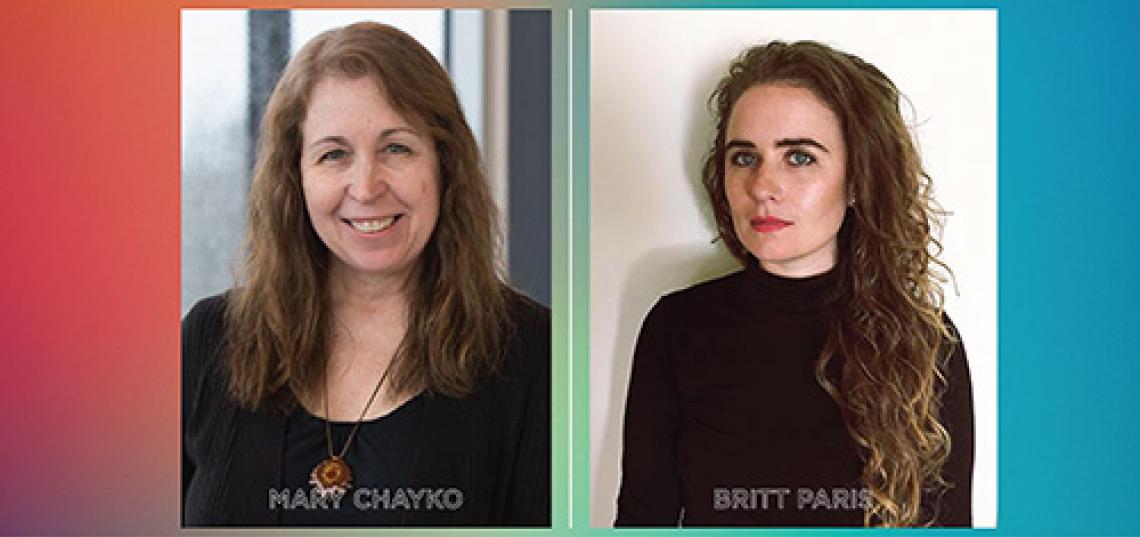
The new “Routledge Handbook of Digital Media and Communication,” edited by Leah A. Lievrouw and Brian D. Loader, includes chapters by SC&I faculty members Mary Chayko and Britt Paris. The Handbook is a comprehensive overview of this vibrant field of study that features chapters by leading global scholars.
The chapters they contributed are “The practice of identity: Development, expression, performance, form” by Chayko, and “Information, technology, and work: Proletarianization, precarity, piecework,” by Paris (with Lievrouw).
“Sociologists consider a person's identity to be constantly under construction, deeply influenced by the interactions we have with others,” Chayko said, explaining the overarching premise of her chapter. “Because there is so much interaction occurring online, and it has such reality and consequence for individuals, the internet and social media can be thought of as ‘laboratories’ in which identity development is constantly taking place. This chapter explains these processes and how they happen in digital spaces.”
Through her contribution, Chayko explained, “I encourage readers to use digital technology and social media to form social networks and communities that enhance their identity in positive ways. This includes the development of talents, skills, interests, knowledge, collaborative projects, etc. It is my hope that people will stay open to multiple, different points of view, and make sure that at least some of their online networks are large, broad, and diverse, so they have access to a wide range of people and ideas.”
Mary Chayko's research into identity and digital socialization is also highlighted in the recently published third edition of her multidisciplinary book "Superconnected: The Internet, Digital Media, and Techno-Social Life" (Sage Publications). The book explores such issues as surveillance, tech dependency, citizen journalism, activism, bias and stereotyping, digital intimacies and inequalities, and the reality of the digital, as well. Additional information on "Superconnected,” and instructor's resources and podcasts, can be found on the book’s blog here.
Britt Paris' chapter in the Routledge handbook “might be useful for scholars who wish to use social theory around information technologies and information labor to understand the political economic ground upon which the tech industry functions, but also, upon which bottom-up organizing is possible,” Paris said.
Putting the research presented in the chapter in historical context, Paris said, “Social theorists and scholars studying the political economy of information in the 1960s, like Fritz Machlup and Alain Touraine, saw knowledge work as a new and powerful sector that could use their media and technology know-how for pro-social, bottom-up mobilization. However, this promise has gone largely unfulfilled, save a few incidents that have largely not enjoyed longitudinal gains. This chapter describes how neoliberalism co-opted knowledge work in the service of corporate power and eventually automated many of these workers into precarity.”
Asked if humanity’s current level of networked connectivity is a benefit to global society, or if it involves too many drawbacks or complications to be considered an overall positive, Paris noted that “the way networked connectivity is configured at present benefits the powerful and weakens protections for everyone else. That being said, there is potential for technology to be used in ways that promote bottom-up mobilization, and that promotes value for folks that are not already powerful. But we have a lot of work to do before we get there.”
To learn more, or to purchase the “Routledge Handbook of Digital Media and Communication” see the website.
More information about the Digital Communication, Information, and Media Program and the Library Science and Information Department at the Rutgers School of Communication and Information is available on the School’s website.
